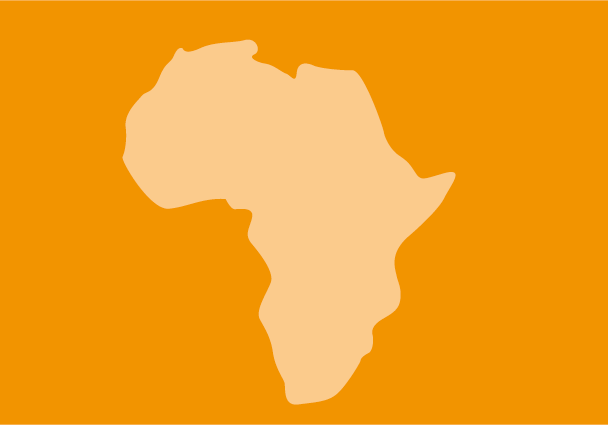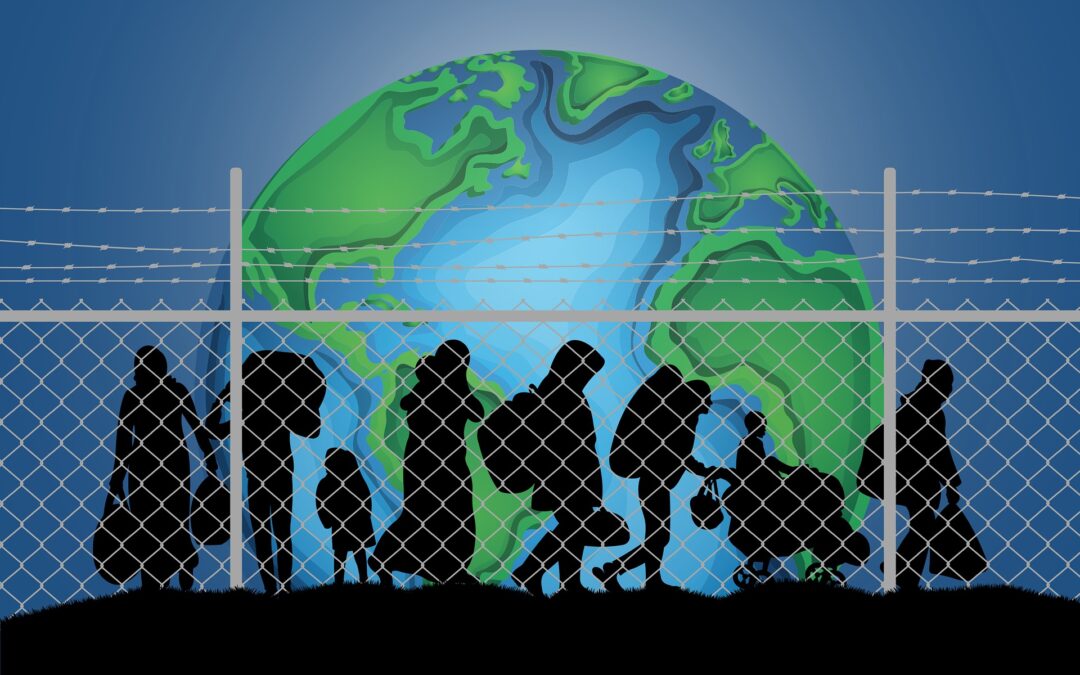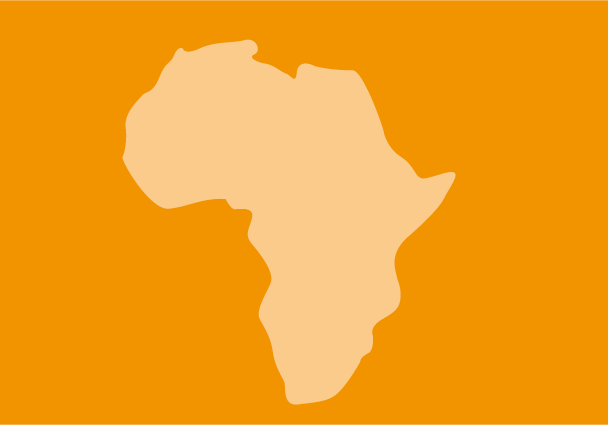


Switzerland/Gambia: Jammeh-Era Crimes on Trial
For Immediate Release
Gambian Ex-Minister Sonko Faces Crimes Against Humanity Charges
(Geneva, January 5, 2024) – The opening of a Swiss trial on January 8, 2024, for serious crimes committed in The Gambia represents a significant advance for justice for the victims of grave abuses, Gambian and international groups that are part of the Jammeh2Justice campaign said today.
The former Gambian Interior Minister Ousman Sonko is charged with crimes against humanity relating to torture, kidnapping, sexual violence, and unlawful killings between 2000 and 2016 under then-President Yahya Jammeh. Jammeh’s 22-year rule was marked by systematic and widespread human rights violations, such as arbitrary arrests, torture including sexual violence, extrajudicial killings, and enforced disappearances of actual and perceived opponents to his rule.
“The trial of Ousman Sonko is another major step in the search for justice for victims of brutal crimes and their families committed under Jammeh’s rule,” said Sirra Ndow, coordinator of the Jammeh2Justice campaign. “The Sonko case should reinforce efforts back in The Gambia to try crimes under Jammeh’s rule so that perpetrators are held to account for the atrocities committed.”
Sonko was arrested in Bern, Switzerland on January 26, 2017, the day after TRIAL International filed a criminal complaint against him. The Office of the Attorney General of Switzerland filed an indictment against Sonko before the Federal Criminal Court on April 17, 2023. The trial, taking place in the city of Bellinzona, is expected to last about three weeks.
The trial is possible because Swiss law recognizes universal jurisdiction over certain serious international crimes, allowing for the prosecution of these crimes no matter where they were committed and regardless of the nationality of the suspects or victims. Swiss nongovernmental organizations, former federal prosecutors, members of parliament, and others have previously criticized judicial officials in Switzerland for lagging behind other European countries on universal jurisdiction cases despite having solid legislation to address serious crimes.
“With Sonko’s trial, Switzerland appears at last to be gaining momentum on prosecuting atrocity crimes committed abroad,” said Philip Grant, executive director at TRIAL International, which supports plaintiffs in the case. “Sonko is the highest-level former official to be tried under the principle of universal jurisdiction in Europe.”
Sonko is the second person to be tried in Switzerland before a non-military court for serious crimes committed abroad, the second person to be tried in Europe for crimes committed in The Gambia, and the highest ranked official to be prosecuted in Europe on the basis of universal jurisdiction. Gambian activists and survivors, and international advocates will attend the trial’s opening in Bellinzona and are available for comment. The first case addressing crimes committed in The Gambia was in Germany against Bai Lowe, a former member of the paramilitary unit known as the “Junglers,” which Jammeh created. Lowe was convicted and sentenced to life in prison by a German court on November 30, 2023, for two murders and an attempted murder, constituting crimes against humanity.
A major challenge will be to ensure that Gambians, whether in the audience or outside the courtroom, can access, follow, and understand the proceedings, which will be conducted in German. Survivors, victims’ groups, and civil society groups have tried to ensure that information on developments is disseminated within The Gambia to increase their impact.
“Developments in the proceedings of such a significant case should be made accessible to Gambians, victims and non-victims alike, in the English language, which they understand, there by boosting their interest in the trial,” said Fatoumata Sandeng, a plaintiff in the Sonko case who heads the Solo Sandeng Foundation. “Greater action on accountability by the government back home in Gambia is also needed.”
Since Jammeh’s fall, The Gambia has moved forward with only two prosecutions for Jammeh-era crimes. In December 24, 2021, the final report of Gambia’s Truth Reconciliation and Reparations Commission (TRRC) found that Jammeh and 69 of his associates committed crimes against humanity, and called for their prosecution. On May 25, 2022, the Gambian government accepted the TRRC’s recommendation for accountability, but without an action plan.
On May 12, 2023, the government presented a long-awaited detailed implementation plan calling for the creation of a Special Prosecutor’s Office to complete the investigations initiated by the TRRC and to prepare case-ready dossiers. A hybrid tribunal of Gambia and the Economic Community of West African States (ECOWAS) would be created to carry out prosecutions of the most serious offenses. The Gambia and ECOWAS have created a joint technical committee to develop the hybrid court.
“The Gambian government and ECOWAS should move without delay to create the hybrid court,” said Elise Keppler, associate international justice director at Human Rights Watch. “Victims and the Gambian public have waited a very long time to have the chance to see justice done.”
Groups involved with the campaign include: Africa Center for International Law and Accountability (ACILA), African Network Against Extrajudicial Killings and Enforced Disappearances (ANEKED), Amnesty International–Ghana, Center for Justice and Accountability, Commonwealth Human Rights Initiative (CHRI), Gambia Center for Victims of Human Rights Violations, Ghana Center for Democratic Development (CDD-GHANA), Human Rights Advocacy Center, Human Rights Watch, International Commission of Jurists, Institute for Human Rights and Development in Africa (IHRDA), Media Foundation for West Africa (MFWA), POS Foundation, Right 2 Know–Gambia, Solo Sandeng Foundation, The Toufah Foundation, TRIAL International, and Women’s Association for Victims’ Empowerment (WAVE).
For more information on the trial, please visit:
https://trialinternational.org/latest-post/ousman-sonko-case-the-second-trial-for-crimes-against-humanity-in-switzerland-to-take-place-in-january-2024/
or, https://trialinternational.org/wp-content/uploads/2023/04/The-Ousman-Sonko-Case_QA.pdf
For more information, please contact:
For Human Rights Watch, in New York, Elise Keppler (English, French): +1-917-687-8576 (mobile); or kepplee@hrw.org. Twitter: @EliseKeppler
For TRIAL International, in Geneva, Vony Rambolamanana (English, French, German): +33-66 -48-80-305 (mobile); or media@trialinternational.org. Twitter: @trial
For ANEKED, in New York, Nana-Jo Ndow (English, French, Spanish, Portuguese): +1-929-684-5734 (mobile); or nanajo.ndow@aneked.org. @theANEKED
For International Commission of Jurists, in Barcelona, Reed Brody (English, Spanish, French, Portuguese): +1-917-388-6745 (mobile); or reedbrody@gmail.com. Twitter: @reedbrody
For Solo Sandeng Foundation, in Germany, Fatoumatta Sandeng (English, German, Mandinka, Wollof) +49-16-31-74-75-19 (mobile); or solosandengfoundation@gmail.com. Twitter: @solosandengfound

The EU agrees to compromise human rights of migrants and refugees
Today, the ICJ condemned aspects of the agreement reached by the EU Member States and the European Parliament on the last five instruments from the EU Pact on Migration and Asylum, stressing that it will effectively strip away core human rights and refugee protections for persons from vulnerable populations.
The ICJ calls on the EU and its Member States to adhere strictly to their international legal obligations, particularly under human rights law and refugee law, in implementing any new legislative measures.
The Pact, a major set of legislative proposals on the EU’s migration policy initially proposed by the European Commission in September 2020, aims to update the existing rules of the Common European Asylum System (CEAS), which was renegotiated just a few years prior to this proposal.
« The agreement reached today between the co-legislators, the Council of the EU and the European Parliament sends a worrying signal on the state of EU’s commitment to human rights protection, » said Karolína Babická, Senior Legal Adviser of the ICJ Europe and Central Asia Programme. « Although a final text of the legislative instruments is yet to be seen, the agreement waters down protection and safeguards for the rights of migrants and refugees, that oblige the EU Member States under international law. »
Based on the agreement reached today on the Asylum Procedures Regulation, applicants will not have access to free legal assistance, including in border procedures, as it will only be available for certain persons at the appeals stage, where for many it will be too late. Other points agreed include more fast-track procedures with fewer individual safeguards for the migrants and refugees in question. The Council and the European Parliament also agreed with the proposal of a fiction of “non-entry” to the territory, which is intended have the effect of removing migrants and refugees from the protective of spheres of the state on the grounds that they are not really in the country.
« These are in breach of international human rights standards and rules on jurisdiction and will lead to more administrative detention, which effectively punishes those in most need of protection, » said Babická, « It appears that the instruments are intended to allow for border procedures with nearly no procedural safeguards, resulting in quick deportations. However, even in border zones or transit zones, the State’s human rights law obligations remain fully applicable. »
The asylum border procedure as agreed would apply to asylum seekers who are either “unlikely to be granted asylum”, whose claim is fraudulent or abusive, or who are considered a security risk. This provision undermines the key principle of refugee protection, ensuring an individual assessment of one’s asylum claim. Regardless of the general recognition rate, many individuals are still refugees in need of protection status due to circumstances of their individual case. Equally in assessing whether the application is fraudulent, abusive or potentially a security risk, an individualised assessment must be in place.
Indeed, it is difficult to assess any of the purported criteria without fair hearing based on equal protection and the rule of law.
A further problematic aspect includes the disparate treatment and safeguards for available for children below the age of twelve and those twelve and older. Under the Convention on the Rights of the Child, a child is considered a person under the age of 18 must be afforded the protections due to them. Under these rules, older children would for instance not be exempted from border procedures.
The ICJ has previously warned about harmful provisions in the proposals regarding detention in the Screening and Asylum Procedures Regulation.
The Regulation on Asylum and Migration Management, replacing the current Dublin Regulation, will now exclude the possibility for applicants to be transferred to the Member State where they have a sibling or other family member with a legal residence. This provision seriously worsens the situation of asylum applicants in the EU CEAS so far, in breach of international legal standards, especially the right to family life.

Germany: Verdict in Gambia Atrocity Case
FOR IMMEDIATE RELEASE
Berlin, November 28, 2023 – A German court in the city of Celle is expected to deliver a verdict on November 30, 2023, in the first trial in Germany for crimes committed in The Gambia, Gambian and international civil society groups said today in releasing a question and answer document about the trial.
The groups are: the African Network against Extrajudicial Killings and Enforced Disappearances (ANEKED), the European Center for Constitutional and Human Rights (ECCHR), the Gambian Center for Victims of Human Rights Violations, Human Rights Watch, the International Commission of Jurists, Reporters Without Borders (RSF), the Rose Lokissim Association, the Solo Sandeng Foundation, and TRIAL International.
This trial is possible because Germany recognizes universal jurisdiction over certain serious crimes under international law, allowing for the investigation and prosecution of these crimes no matter where they were committed and regardless of the nationality of the suspects or victims.
The trial concerns Bai L., an alleged member of the “Junglers,” a paramilitary unit also known as the “Patrol Team,” which was set up by then-president Yahya Jammeh in the mid-1990s. Jammeh’s 22-year rule was marked by systematic oppression and widespread human rights violations, including torture, extrajudicial killings, enforced disappearances, and sexual violence against actual and perceived opponents.
German prosecutors accuse Bai L. of being a Junglers driver involved in the attempted murder of Ousman Sillah, a lawyer; the murder of Deyda Hydara, a journalist; the attempted murder of Ida Jagne and Nian Sarang Jobe, who worked with the independent newspaper Hydara; and the murder of a former Gambian soldier, Dawda Nyassi
The verdict in the Bai L. case represents a major step in the search for justice for years of abuses committed under Jammeh’s rule in The Gambia, the groups said. The Bai L. trial reinforces the role that governments like Germany can play in advancing justice for atrocities committed abroad under the principle of universal jurisdiction.
Civil society groups will hold a news conference online on Thursday, November 30 after the verdict is issued – scheduled for 3:30 pm CET – at the following link: https://us06web.zoom.us/j/81236784593?pwd=tvLgbtT3I8N9rF2Db2XTIRyH3Kn1gv.1
To read the question-and-answer document, please see the attached PDF:
Questions and Answers on first German trial for serious crimes
For more information, please contact:
For Reporters Without Borders, in Dakar, Sadibou Marong (English, French): +221-70-960-40-92 (mobile); or smarong@rsf.org. Twitter: @cheikhsadbu
For TRIAL International, in Geneva, Babaka Mputu (English, French, German): +41-775-07-04-56 (mobile); or media@trialinternational.org. Twitter: @Trial
For Human Rights Watch, in New York, Elise Keppler (English, French): +1-917-687-8576 (mobile); or kepplee@hrw.org. Twitter: @EliseKeppler
For Solo Sandeng Foundation, in Germany, Fatoumatta Sandeng (English, German, Mandinka, Wollof): +49-163-174-7519 (mobile); or solosandengfoundation@gmail.com. Twitter: @solosandengfound
For ANEKED, in New York, Nana-Jo Ndow (English, French, Spanish, Portuguese): +1-929-684-5734 (mobile); or nanajo.ndow@aneked.org. @theANEKED
For Reporters Without Borders, in Berlin, Nicola Bier (German, English, French, Spanish, Italian): +49-160-9957-6073 (mobile); or nicola.bier@reporter-ohne-grenzen.de. Twitter: @ReporterOG
Lawyer for Baba Hydara and Omar and Modou Nyassi, in Celle, Patrick Kroker (German, English, French): +49-170-813-6258 (mobile); or info@patrickkroker.net. Twitter: @pkroker2
For International Commission of Jurists, in New York, Reed Brody (English, Spanish, French, Portuguese): +1-917-388-6745 (mobile); or reedbrody@gmail.com. Twitter: @reedbrody

Switzerland: European Court of Human Rights rules in favour of South African athlete, Mokgadi Caster Semenya
On 11 July 2023, the Chamber of the third section of the European Court of Human Rights (ECtHR) handed down its judgment in the case of Semenya v. Switzerland finding that Caster Semenya’s right to freedom from discrimination, taken together with her rights to respect for private life and to an effective remedy had been violated.

European Court of Human Rights: ICJ welcomes a landmark decision upholding judicial independence in Poland
The International Commission of Jurists (ICJ) applauds the European Court οf Human Rights judgement of 6 July 2023 in the case of Tuleya v Poland which effectively affirms the need for Poland to change course in its approach on the independence of the judiciary in the country.
The ICJ calls on the responsible Polish authorities to promptly implement the judgement and reverse the measures taken in recent years with a view to strengthening the rule of law in the country.




